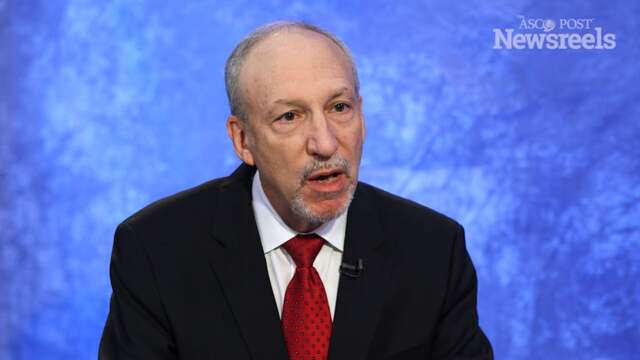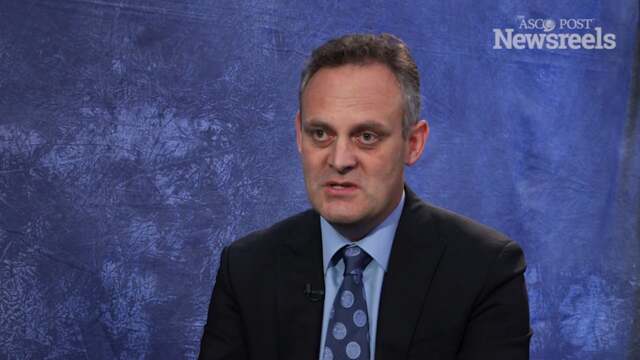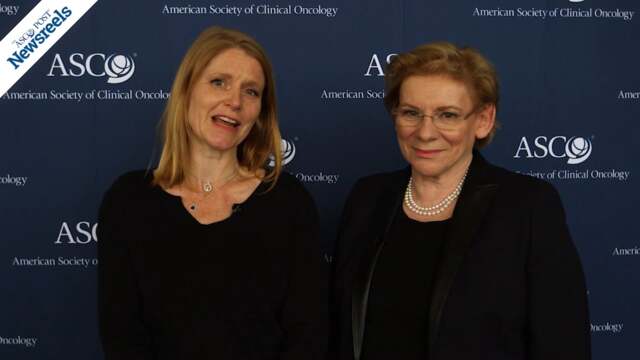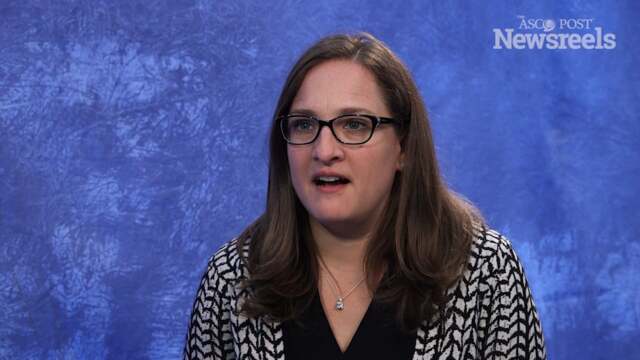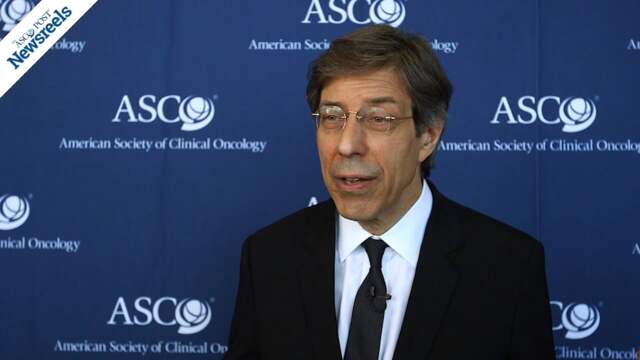Alice Tsang Shaw, MD, PhD, and Tony Mok, MD, on NSCLC: Results From the ALEX and ARCHER 1050 Trials
2017 ASCO Annual Meeting
Alice Tsang Shaw, MD, PhD, of Massachusetts General Hospital, and Tony Mok, MD, of the Chinese University of Hong Kong, discuss their two ASCO-featured abstracts on non–small cell lung cancer: alectinib vs crizotinib in treatment-naive advanced ALK+ disease, and dacomitinib vs gefitinib for first-line treatment of advanced EGFR+ disease. (Abstracts LBA9008 and LBA9007)
Lee S. Schwartzberg, MD, of West Cancer Center, reports on this past year’s progress of the ACCC initiative to speed adoption of immunotherapeutics in community practices.
Arnaud Scherpereel, MD, PhD, of the University Hospital of Lille, discusses phase II study findings on second- or third-line nivolumab vs nivolumab plus ipilimumab in malignant pleural mesothelioma patients. (Abstract LBA8507)
Solange Peters, MD, PhD, of the University of Lausanne, who has been a driving force in ESMO’s efforts to promote women in oncology, talks with Mary Gospodarowicz, MD, of Princess Margaret Hospital, a recipient of the 2017 Women Who Conquer Cancer Mentorship Award.
Elizabeth R. Plimack, MD, of Fox Chase Cancer Center, discusses highlights of three important abstracts on advanced and metastatic urothelial cancer presented at the 2017 ASCO Annual Meeting. (Abstracts 4501, 4503, 106)
Gary Rodin, MD, of the University of Toronto, discusses study findings on a systematic approach to alleviating distress and managing predictable challenges. (Abstract LBA10001)
